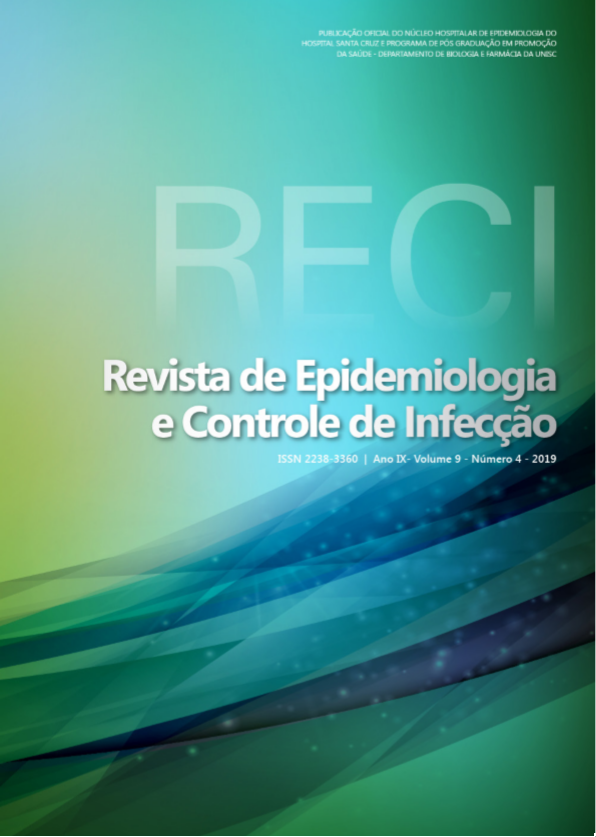Adverse events related to medication administration in a Taquari Valley hospital
DOI:
https://doi.org/10.17058/.v9i4.13574Keywords:
Medication errors. Patient safety. Adverse Drug Reaction Notification Systems.Abstract
Background and Objectives: The medication process in the hospital environment is one of the most important activities to ensure efficacy in the patient's therapy. The objective of this study was to know the perception of the nursing team about the occurrence of adverse events related to drug administration in a hospital in Vale do Taquari, Rio Grande do Sul. Methods: This is a descriptive exploratory study with a qualitative approach-quantitative. Data were collected through the application of a questionnaire to nursing professionals, constituting a sample of fifty-eight interviewees. The analysis was made through descriptive statistics. Results: Of the participants, 96.6% knew the steps to avoid medication errors, and 79.3% had already made some mistake in their professional practices in the institution. The most frequent error was the erroneous administration dose of 43.5%, with 97.3% of the professionals already perceived some error in the medication process and 30% considered the work overload to be an aggravating factor for the occurrence of errors. Regarding the professional's behavior regarding the error, 80.4% communicated verbally to the supervising professional and as a consequence received verbal guidance 78.3% of the time. As for feelings about the error 36.8% revealed to feel fear of harming the patient. Conclusion: These findings point to serious potential errors that impair patient safety; however, it is noted that verbal guidelines are offered avoiding punishment, but the incentive for reporting the error is precarious, making it difficult for the team to identify potential errors and implement barriers to avoid them.Downloads
Downloads
Published
How to Cite
Issue
Section
License
The author must state that the paper is original (has not been published previously), not infringing any copyright or other ownership right involving third parties. Once the paper is submitted, the Journal reserves the right to make normative changes, such as spelling and grammar, in order to maintain the language standard, but respecting the author’s style. The published papers become ownership of RECI, considering that all the opinions expressed by the authors are their responsibility. Because we are an open access journal, we allow free use of articles in educational and scientific applications provided the source is cited under the Creative Commons CC-BY license.


